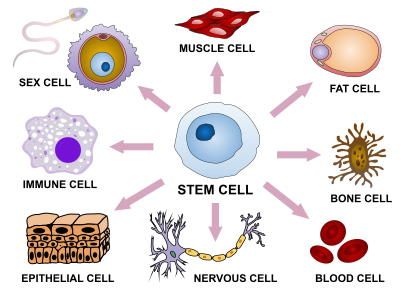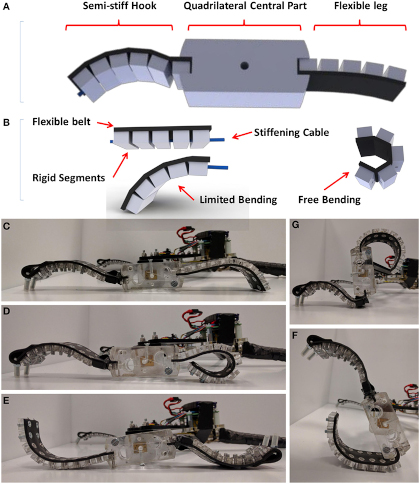Che Cos'è una Cellula Stamminale?
Le cellule staminali sono cellule biologiche non differenziate capaci di svilupparsi in tipi cellulari specializzati. Svolgono un ruolo fondamentale nella crescita, nella guarigione e nella rigenerazione dei tessuti. Esistono due tipi principali: le cellule staminali embrionali (che possono trasformarsi in qualsiasi tipo cellulare) e le cellule staminali adulte (più limitate, ma comunque vitali per la riparazione).

Cellule Staminali nella Robotica
L'intersezione tra la ricerca sulle cellule staminali e la robotica è un campo in rapida evoluzione. Gli scienziati stanno esplorando come i principi biologici, come l'auto-riparazione e l'adattabilità presenti nelle cellule staminali, possano ispirare la progettazione di robot avanzati. Ad esempio, i "robot bio-ibridi" integrano cellule vive (inclusi le cellule staminali) con materiali sintetici per creare macchine in grado di autoripararsi o adattarsi all'ambiente.

Applicazioni e Prospettive Future
Le possibili applicazioni includono robot medici in grado di riparare tessuti, robot morbidi per il rilascio di farmaci e protesi adattive. La ricerca è in corso per utilizzare le cellule staminali nella coltivazione di tessuti muscolari o cellule nervose direttamente su strutture robotiche, abilitando movimenti più simili a quelli naturali e capacità di auto-riparazione.
 Di Ali Sadeghi, Alessio Mondini, Emanuela Del Dottore, Anand Kumar Mishra e Barbara Mazzolai
Di Ali Sadeghi, Alessio Mondini, Emanuela Del Dottore, Anand Kumar Mishra e Barbara Mazzolaihttp://journal.frontiersin.org/article/10.3389/frobt.2016.00073/full
Interfacce Cervello-Computer (BCI) e Applicazioni Cliniche
Nel 2025, le interfacce cervello-computer (BCI) stanno rivoluzionando la medicina riabilitativa. Aziende come Neuralink e progetti in Cina stanno testando dispositivi in grado di tradurre gli impulsi cerebrali in comandi per arti robotici o comunicazione digitale. I trial clinici hanno già dimostrato che pazienti con lesioni al midollo spinale possono mangiare, bere e afferrare oggetti dopo nove mesi di utilizzo. Questi sistemi rappresentano un salto in avanti verso protesi intelligenti e autonomia per persone con disabilità gravi.
Xenobots e Microrobot a Base di Cellule Staminali
Una delle innovazioni più recenti riguarda i Xenobots, robot viventi sviluppati da cellule staminali di rana. Questi bio-robot sono capaci di muoversi autonomamente, autoripararsi e trasportare carichi microscopici. Grazie alla loro biocompatibilità e biodegradabilità, sono ideali per applicazioni mediche come il rilascio mirato di farmaci o la rimozione di placche aterosclerotiche. Studi recenti mostrano progressi nell’integrazione di neuroni derivati da cellule staminali per controllare muscoli artificiali in modo autonomo.
Robot Bio-Ibridi con Capacità Sensoriali
I nuovi robot bio-ibridi integrano non solo muscoli, ma anche reti neurali artificiali e sensori biologici, permettendo loro di rispondere a stimoli ambientali in modo adattivo. Ricerche all’Università dell’Illinois hanno sviluppato robot nuotanti comandati da cellule muscolari cardiache di ratto. Questi sistemi sono testati per monitorare inquinanti o rimuovere microplastiche in ambienti acquatici, aprendo scenari di robotica ecologica sostenibile.
Prospettive Future: Auto-Replicazione e Integrazione Neurale
La frontiera della ricerca punta a sistemi auto-replicanti e robot con capacità di apprendimento grazie a reti neurali ibride. L’obiettivo è creare dispositivi che possano adattarsi, evolversi e operare in autonomia all’interno del corpo umano o in ambienti estremi. Il mercato della robotica morbida, strettamente legato a questa tecnologia, dovrebbe raggiungere 5,3 miliardi di dollari entro il 2031.
Riferimenti e Letture Consigliate
La scienza è un modo di vivere raffinato, che richiede una mente aperta e una continua curiosità.
La ricerca sulle cellule staminali e la robotica non è solo un campo di studio, ma un viaggio verso il futuro della tecnologia e della biologia.
BiotechProject. Un progetto per un web più inclusivo.
